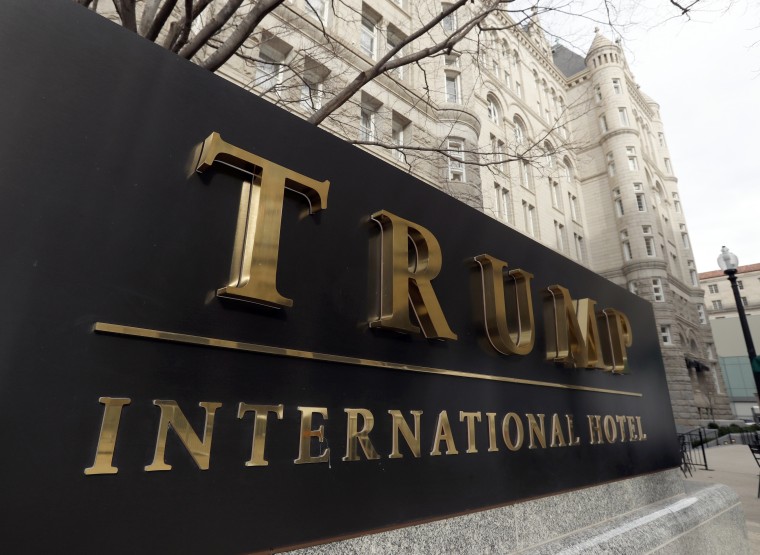The U.S. Constitution includes a once-obscure provision known as the "Emoluments Clause," which as regular readers know, prohibits U.S. officials from receiving payments from foreign governments. Traditionally, this hasn't been much of a problem for sitting American presidents -- but with Donald Trump things are a little different.
After all, this president has refused to divest from his private-sector enterprises, which means he continues to personally profit from businesses that receive payments from foreign governments.
The problem isn't theoretical: Saudi Arabia, for example, spent roughly $270,000 at Trump's Washington hotel during one of the country's lobbying campaigns in 2017. Some of that money benefited the president -- because he owns the place.
But to appreciate the scope of the problem, it's important to know how many other countries' representatives have taken similar steps. NBC News ran this report earlier today:
Representatives of at least 22 foreign governments appear to have spent money at Trump Organization properties, an NBC News review has found, hinting at a significant foreign cash flow to the American president that critics say violates the U.S. Constitution.The extent and amount of foreign spending at Trump's hotels, golf clubs and restaurants is not known, because the Trump Organization is a private company and declines to disclose that information. Trump promised to donate any profits from foreign governments, and the Trump Organization has sent $343,000 to the U.S. Treasury for 2017 and 2018. The company did not release underlying numbers to support that figure.
Keep in mind, given the constitutional restrictions, the number of countries with representatives spending money at Trump-owned properties would ideally be zero. One is too many.
Twenty-two seems awfully tough to defend.
Circling back to our earlier coverage, there was an Associated Press report late last year noting the degree to which Trump's presidency has "changed Washington," and the article noted in passing that international leaders have learned that "some business at a Trump-owned hotel" can contribute to "a good relationship with the president."
The result is a dynamic that appears inherently corrupt: officials shouldn't even be able to try to curry favor with an American president this way.
To be sure, there's no reason to believe Trump or any of his associates have ever told anyone, "You're more likely to get what you want if you spend money at a Trump Organization property." The trouble is, there's no need for corruption that brazen.
Instead, people hoping to influence the president and his administration likely make a subtle assumption: indirectly putting money in Trump's pocket might give them an edge they'd otherwise lack.
Lawsuits testing the president's emoluments posture are ongoing. Watch this space.
